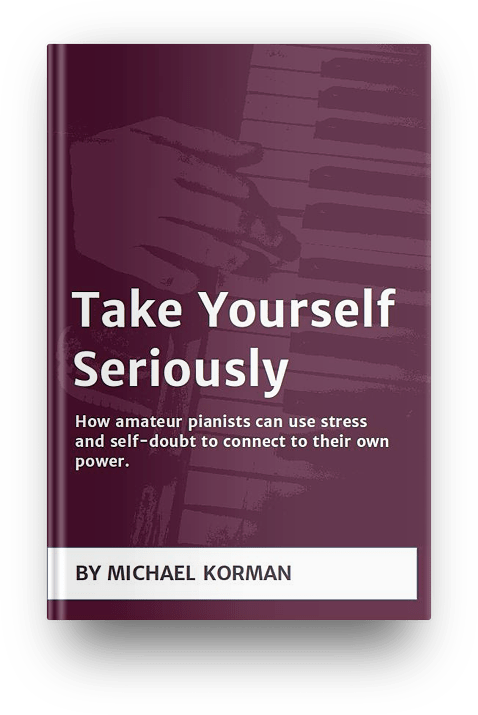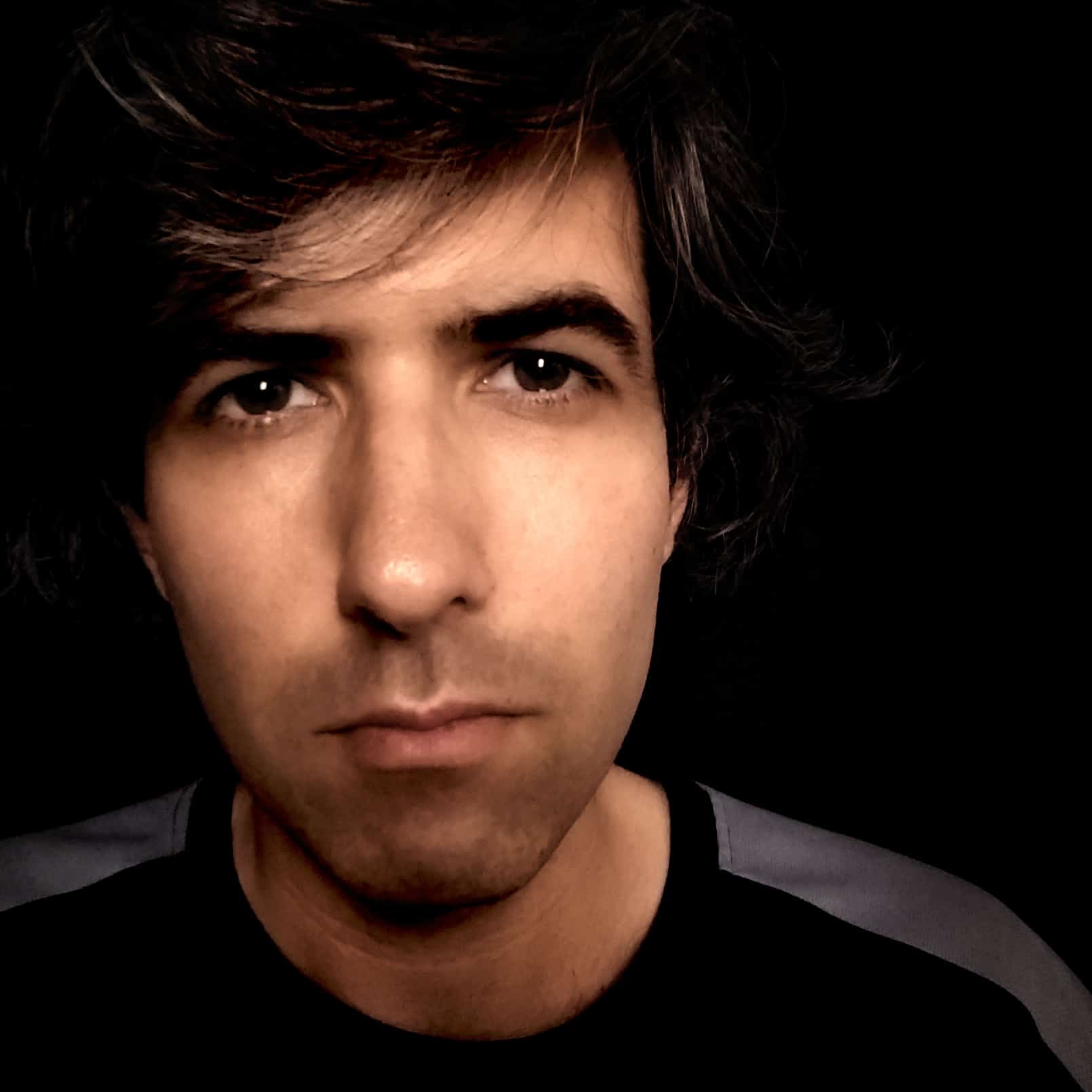For pianists who aren’t professionals but also aren’t doing this “just for fun.”
Contrary to popular belief, you can play like an artist even if you started late, suck at goal-setting and can’t bring yourself to slog through hours of tedious practice.
Get your copy of the ebook "Take Yourself Seriously" today.
$15 USD

The piano community cares more about status than about helping you succeed.
In these 6 chapters, you’ll learn:
Oh, and there are exercises for each one. You know, to make sure you learn something.
Dear Pianist Who’s Decided to Be Serious in Spite of Social Pressure,
What I see often (and experienced myself) is that non-professional pianists are not respected, and in fact stonewalled by gatekeepers. You feel like a failure because you’ve been led to believe you’re too old or aren’t diligent enough, and as a result you hate how you play.
The honest truth is that you’ve been told a few lies by society and you’ve accidentally fallen into the trap of believing them.
I want you to play like an artist and to get recognition for your efforts (even if you’re not a professional). Not only that, I want you to be happy with how you play and for the piano community to be enriched by your presence (even if you don’t like all the people in it).
Let’s make it happen.
You don’t get respect by getting really good at the piano.
You get respect it by demanding it. Likewise, you don’t play like an artist by getting really good at the piano. You play like an artist by changing how you play.
You feel like a failure about performing because of lies you were told about how you need to have started as a young kid and to have reached a certain level by a certain age, and at every step of the way you were taught to compare yourself to others.
You don’t need diligence. You need openness to experience and acceptance of your own emotions. These are skills that can be learned. Your personality is fine just the way it is.
Who This is For
This might be for you if:
This might NOT be for if:
It is rare to see something written for serious adult amateurs, and by someone who went that route. I had it on as an audiobook while doing chores – the first chapter on various aspects regarding teachers, I was saying “right” and “certainly” out loud a few times. :D A lot of the things, I wished I’d heard this when I first started my first ever lessons some time ago; it took me years to at least partly find my way out of holes due to some of those things.
IngE
About me

I was a computer science graduate student and I was slacking off on my research. As an undergrad, I was smart but as a grad student, I felt average. So, while I procrastinated on my research, I resumed taking piano lessons in an attempt to feel competent at something (I’d taken lessons in high school, but stopped as an adult).
I was excited, but I stressed out about the lost time and the difficulties of classical piano music. I also struggled with the incompatibilities between the piano world and the computer science world. My personality wasn’t right for music.
But, I figured out a few things. And, what started off as a distraction from my computer science studies turned into something more, and I ended up getting a master’s degree in piano.
